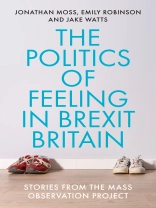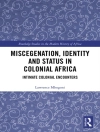During Brexit, political questions were continually framed in emotional terms. The referendum was presented as a conflict between reason and resentment, fear and hope, heads and hearts. The Leave vote was interpreted as the triumph of passion over rationality, and its aftermath triggered concerns about the divisive impact of feelings on political culture. This book examines how these stories about feelings shaped public experiences and determined political possibilities.
The politics of feeling uses first-hand accounts to explore how ‘ordinary’ people understand their own feelings about the referendum, and how they reacted to the feelings of others. It shows how they drew on public narratives, while also rejecting and reworking them. The authors highlight a dangerous contradiction whereby feelings were simultaneously understood as dangerous and illegitimate, and as an authentic reflection of our inner selves. This had its own political consequences.
İçerik tablosu
Introduction: using an ‘archive of feeling’ to understand Brexit Britain
Part I: Beyond ‘heads vs hearts’: personal feelings in political life
1 Voting decisions
2 Judgements and stereotypes
Part II: Stories of excessive emotions: political feelings in personal life
3 Moods
4 Relationships
Conclusion
Index
Yazar hakkında
Emily Robinson is an Advance Research Fellow in the School of Politics and International Relations at the University of Nottingham












